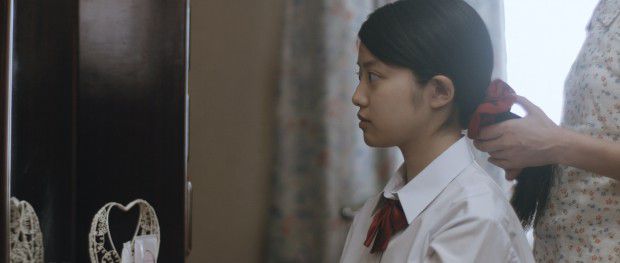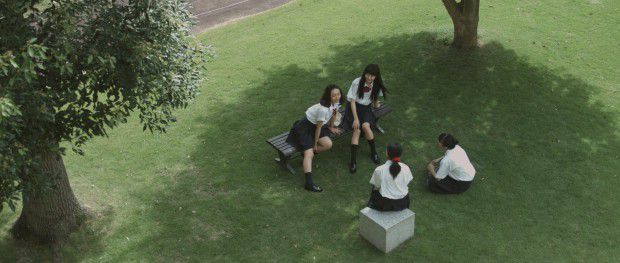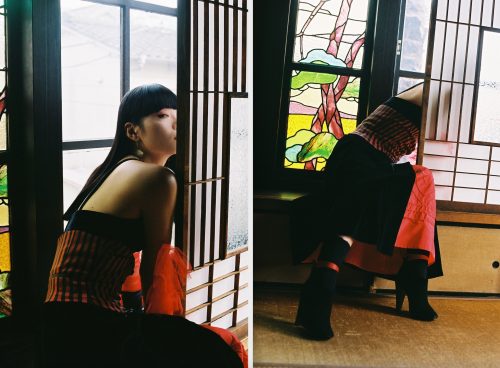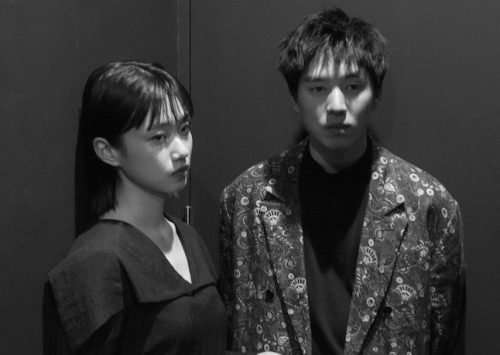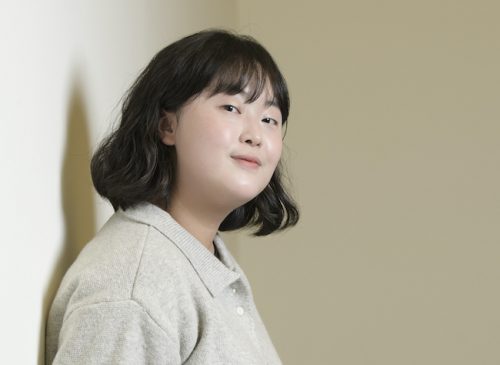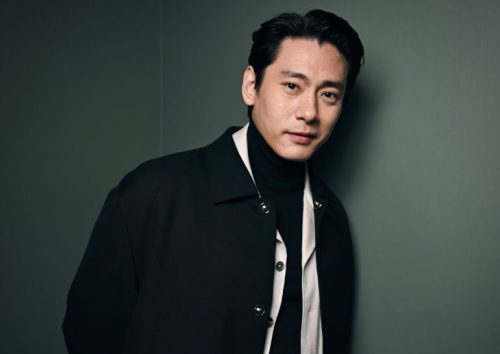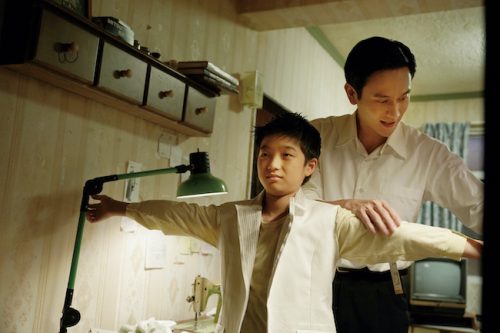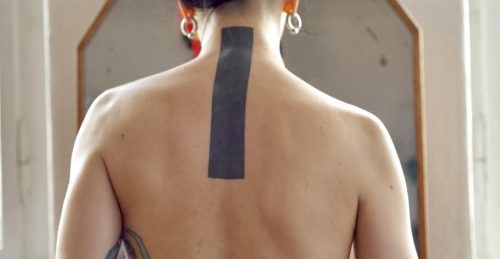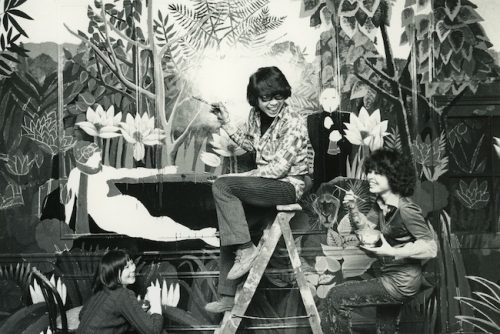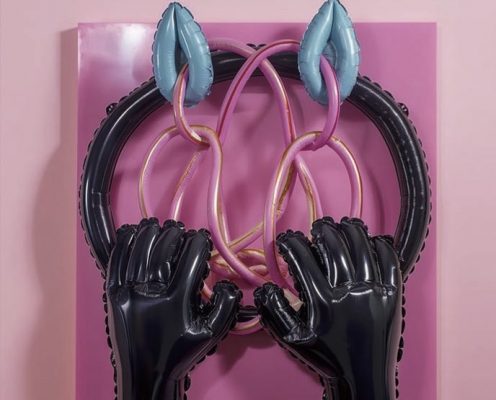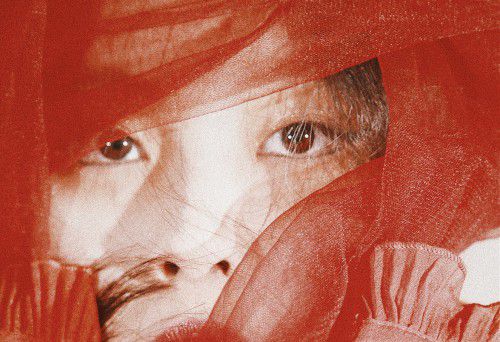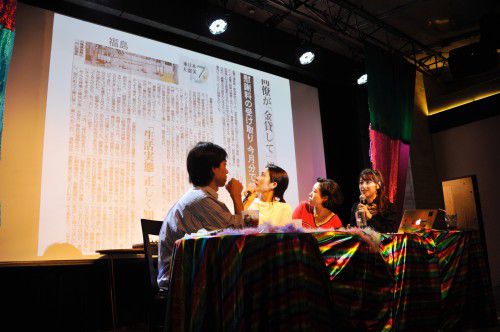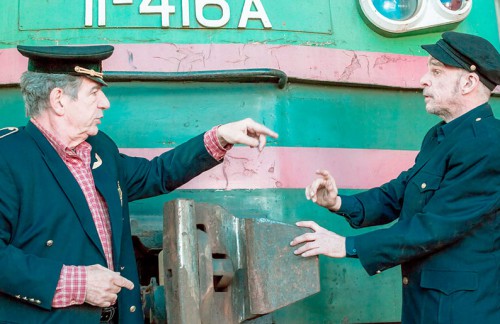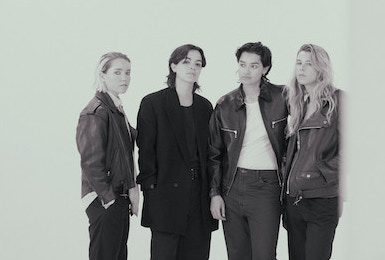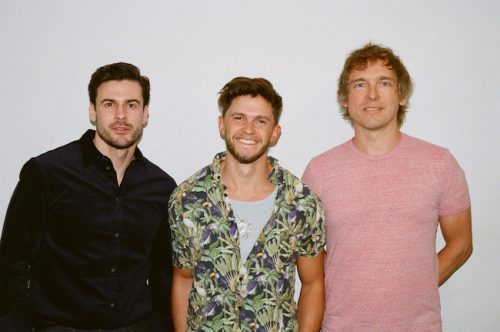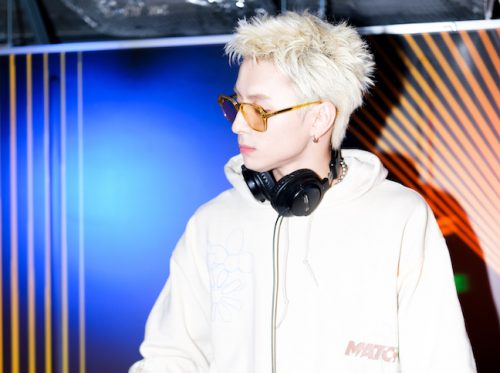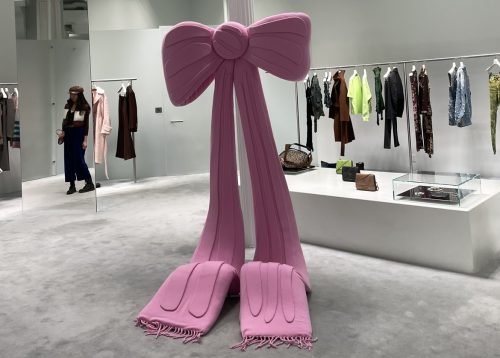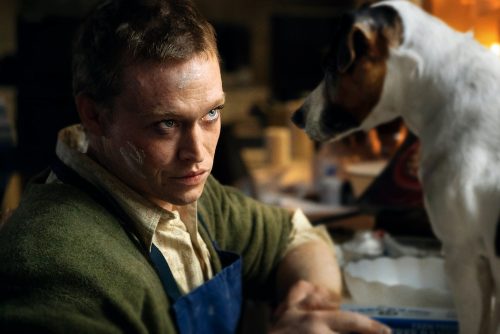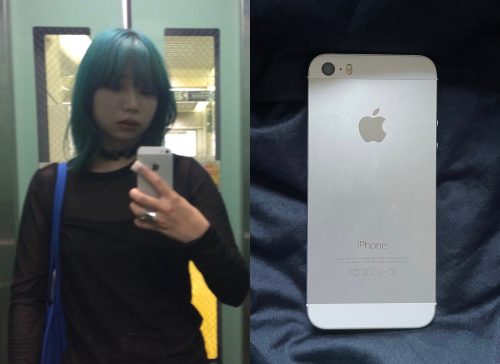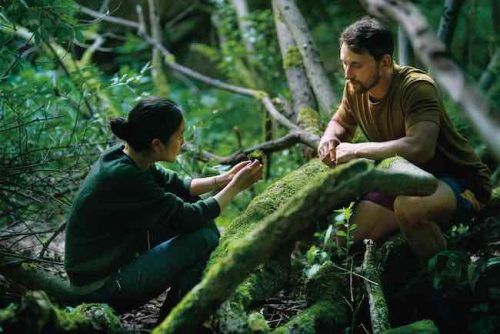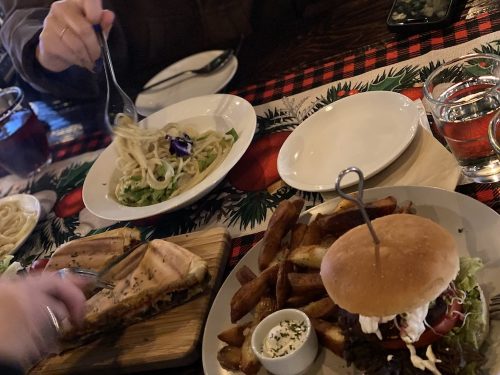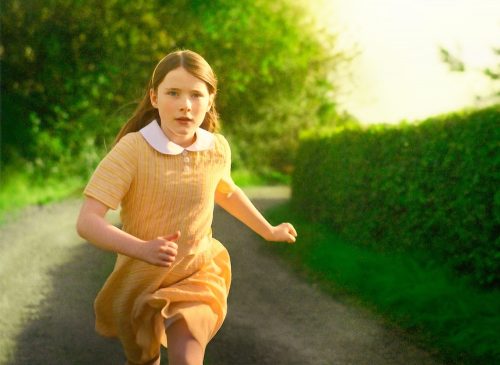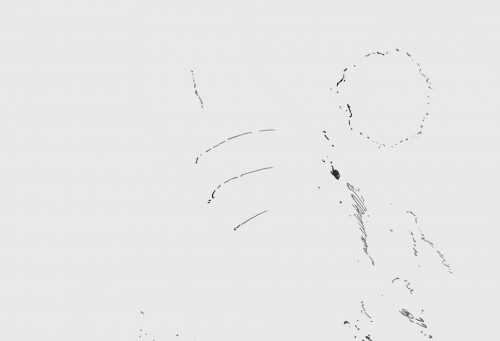今田美桜を主演に迎え、LGBTQをテーマに制作、国内の映画祭でグランプリ6冠を含む計13冠を獲得した話題作『カランコエの花』。尊厳死を主題とした前作では新人監督映画祭コンペティション・中編部門で準グランプリを獲得するなどインディペンデント映画界を席巻している中川 駿監督に、『カランコエの花』の制作プロセスから込められた想い、次作の構想などを聞いた。
The LGBTQ-themed movie “Kalanchoe No Hana”, starring Mio Imada, have won thirteen awards at the Japanese domestic film festivals already. Shun Nakagawa was acknowledged as an independent film directer and was given several awards at the independent film festivals with his previous work “Totoku Ogosokana Shi”, which focused on the theme of death and dignity. Here he talks about the process of the making of “Kalanchoe No Hana” and his thoughts on the next work.
――『カランコエの花』は本当に素晴らしくて、様々な側面で感銘を受けました。主役がセクシャルマイノリティという映画はこれまでにもありましたが、今作では周囲の人間であり、その視点から描くといったアプローチが新しく、まずはどうしてそのようなアプローチになったかをうかがわせてください。
中川「特別に意識をしていたわけではありませんが、僕自身が周りの目を気にする性格であったり、日本人的なマインドを持っているから結果的にそうなったと思います。現状の日本でのLGBTQの方々への視線というのは、まさに作中の月乃という女の子が象徴していますが、彼女は露骨に嫌悪感を示すわけではなく、受け入れようと努めるけれどまだ自分の中で消化しきれていない。そんな中で、相手を傷つけないように慎重に接しているというようなそんな状況だと思います。異性が恋愛対象の僕がLGBTQの方々が持つ葛藤や苦悩を描いたとしてもそれはあくまで想像でしかないし、誠実な作品にはならないので、それであれば僕自身のセクシャリティに沿った文脈で語っていった方が真実だし、おっしゃる通りそういった視点で描かれた作品は僕が知る限りはなかったので、このようなアプローチになりました」
——”Kalanchoe No Hana” was truly impressive.The people who are considered as sexual minorities are depicted through the filter of their surrounding environment. That is really wonderful and groundbreaking. Would you tell us about the process of how you approached the story with a perspective like this?
NAKAGAWA: I didn’t really put much thought into it. I guess that it was because of my own personality as a typical Japanese. I care about how people sees me a lot. The story of the character Tsukino in the film pretty much has represented how the Japanese society is seeing LGBTQ nowadays. She doesn’t express her feeling of disgust directly, instead, she tries her best to understand and digest what she has perceived. To think carefully through everything so that they don’t hurt each other even under that circumstance is what it is about. Since I am not among the LGBTQ society, the only way to make the story is like this.I didn’t want to make the story which is by imagining how it is like for them from an outsider’s perspective. Even though, I wanted the work to be honest and sincere. So I started to illustrate the characters by thinking about how I would feel about it. I guess I just approached from myself.
――周りの気遣いが裏目になって問題の種を蒔いてしまうという状況も描かれていましたが、とてもリアルで残酷に思えました。
中川「なんとかしてあげたいという気持ちが先走ってしまって配慮が足りないということは多々あるのではないでしょうか。この作品を作ろうと思った一つのきっかけとして、あるゲイの方が書かれているブログがあります。その方は自分のセクシャリティにオープンな方なのですが、『自分はゲイだ』と友人に話すと、高い確率で『話してくれてありがとう』の言葉のあとに『絶対に誰にも言わないから安心してね』と言われると。友人が配慮の気持ちでそう言ったのは分かるけれど、『隠さなければいけないことなの?』と思ってしまうと書いていらっしゃったのです。それを読んだときに、僕自身がハッとしたし、自分もそういうことを言うかもしれないなと思いました。その気づきが制作のきっかけの一つとなったのです。本作のタイトルである、カランコエの花言葉『あなたを守る』はそういった“過剰な配慮”や“過剰な気遣い”を表しているんです」
——The problems of the surrounding environment was also illustrated. They are thoughtful.But it’s too much.That was really cruel but also real in every sense.
NAKAGAWA: The urge of managing to support but somehow with not enough of attention paid is the mostly seen condition. One of the reasons that I wanted to make this film was that I saw the blog of a gay acquaintance. He was someone that is very open with his sexuality. He’d say that he was gay to his friend. And he’d get the response of “thank you for telling me” and followed with “I won’t tell anyone”. Even though his friend thought that this was to show that he cared for him, however, he’d think that why is it something that I need to hide? I was shocked when I read that blog. I would have probably said the same thing to him. That was when I started the realize things and wanted to make the film. The flower of Kalanchoe represents the meaning of protection, means that “I will protect you”. But we have never thought about if the protection was necessary of redundant.
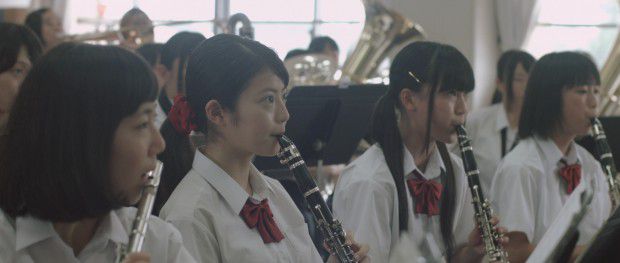
――カランコエについての冒頭のやり取りから吹奏楽部の演奏シーンへの移行が自然で美しかったことも作品への没入感を強めています。
中川「学校のシーンは茨城県の那珂高校で撮影をさせていただいたのですが、そこの校長がLGBTQに対しての教育に熱心に取り込んでいらっしゃる方なのです。作品企画書を読んで、内容に非常に賛同してくださって全面的に協力していただけました。場所だけではなくエキストラで生徒の皆さんが出演してくれて、吹奏楽のシーンも吹奏楽部の皆さんが大切なコンクールの二日前という時期にも関わらず実際に演奏してくださったのです。リアルな高校生たちが練習している曲を作中に取り入れたことで、熱量があるシーンになったと思います。那珂高校ではLGBTQへの理解を促す授業が行われていて、数字などのデータを通して客観的な教育をされています。また同時に、LGBTQの生徒に向けてのお話もされているようです。校長は出来上がった作品も観てくださったのですが、『これは教育の場に広く届けるべきだ』と茨城県の教育委員会にかけあってくださったんです。本当に格好いい方ですよね。学校はとてもむごい場所じゃないですか。大人なら会社など自分の所属するコミュニティが嫌であれば辞めることで解決しますけど、学生にとって学校は世界の全てなのでそこから逃げるという選択肢がないと思いこんでしまう。問題が発生した時にどうしても向き合わざるをえないし、逃げたくても逃げられない過酷な環境です。だからこそ、那珂高校のようにきちんとした理解を持とうと取り組んでいる大人がいる学校というのは、希望のように感じました」
——The beginning of the film was quite immersing. How the scene changed from conversation about Kalanchoe to the performance of the orchestra was really beautiful.
NAKAGAWA: That was shot at Naka High School in Ibaraki Prefecture. The principal was very enthusiastic about the education of LGBTQ and was pleased to cooperate with us after reading the script. The students also participated in several scenes as well. Students from the orchestra scene actually just performed for us before going to an important competition two days after. I think what we have shot there was pretty honest and real, it is really how high school life is and that has contributed to the power of the film. At Naka High School, they give out proper education about LGBTQ with actual data and information. They also offer help and have conversations with LGBTQ students. The principal agreed to our movie cause the education of LGBTQ should be spread and he took the duty of making it happen as an educator in Ibaraki Prefecture. That is really cool. From my perspective, school is the most can be the most dangerous place for one to be. If you are grown up,you can choose to resign from a company if it makes you feel uncomfortable, however, there is nothing you can do to run away from school and quit your identity as a student. Even though the problems occur, you can’t turn away from it.It is a quite serious and cruel place to be. That is why it is very inspiring to see how Naka High School is paying attention and offering support to its student community.
――ええ、本当に。今はようやく世間に認知が広まってきたという段階ですが、それに対して各個人が主体性を持って考えていく必要があるということは本作を通しても感じました。監督はTwitterで「サッカー前日本代表監督ハリル・ホジッチ氏の主体性を重視する指導方針に共感を抱いた」と呟いていらっしゃって、映画作りについてもその姿勢を貫かれているのだなと思いました。
中川「(笑)。そうですね、ハリル監督は『私はどう戦うかのヒントを選手に与えているだけ。ピッチ上の選手が“こうした方が良い”と感じたならば、私の指示を覆しても構わない』とおっしゃっていて、僕の監督方針にも通じるところがあるとシンパシーを感じました。しかし、そのやり方はプレイヤー、役者陣の実力が信頼できること前提で初めて成立することなので、本作ではエチュード(即興劇)をオーディションにも実際の演出にも用いました。そして、エチュード方式を用いるには役者同士の意思疎通が必須なので、撮影前に話し合いの場を設け、先ほどのブログなどについてそれぞれがどう思うか意見を交わしてもらいました。話し合いの中からアイデアをもらって脚本に採用したやり取りも生まれたり、発想や想像の能力がある役者陣の力は本当に大きかったですね」
——Indeed. Even though the cognition is spreading around the world right now, the need of thinking and acting on its own initiative is still not to be neglected. I realized it from this film. You have posted on Twitter that you appreciated the football coach Vahid Halilhodžić because his policies made focusing on the independence of each player. That spirit is also shared in the process of making the film, right?
NAKAGAWA: Sure. Coach Vahid said that he only gives out hints to the players when it comes to competitions.If the player feels like it is better to do it in another way and ignores the direction he points, it is totally fine. However, that policy is only based on the trust in how good the players are. Speaking of that, while making the film, we used Etude (improvise) while auditioning and that later came in as the actual shot as well. In order to make it work, we had to make sure that the actors can communicate with each other. And so we created the forum where everyone can exchange their own opinions about the blog that above-mentioned. As a matter of fact, we did get several ideas from the actors and it is really great to have them think about the story and come up with their own ideas.
――全く不自然さがない演技でしたが、撮影現場ではどんな演技指導をされたのですか?
中川「撮影現場での指導はほとんどなく、本読みやリハーサル段階で作品方針やキャラクター設定を伝えたあとは任せました。リハーサルは4回のみでしたが、撮影前に日程を詰めて一気に遂行したこともあり、撮影自体も泊りがけだったのでキャスト同士がどんどん仲良くなっていったことも自然な演技に繋がっていったと思います。
またカメラの演出についても、フェイクドキュメンタリー的にカメラの動線も決めず役者の動きにフォローする演技優先の方法をとりました。ラース・フォン・トリアー作品の、カメラを縦横無尽に振ったり急にズームしたりする手法に影響を受けていることも大きいと思います。また、本作で言えば非常にリアリティに沿ったテーマなので、作りこみよりも“生っぽさ”を意識しました。そして視点を周囲の人間たちに置くために、通常は寄りにするべきカットも引きで捉え、“これは皆の問題だよ”ということを表現する画角にすることで観客にも訴えかけることを意図しました」
——All the acting and performance seemed pretty mature, how did you manage to do that?
NAKAGAWA: There was little guidance given out at the shoot. I only helped with the understanding of the script and how I’d like the story to be done while rehearsing. We rehearsed for only four times and before the final shoot starts, the cast went out together, spent the night and got along with each other quite well. I guess that is why they can give out such mature performance. Also, from the camera’s side, I decided to follow the move the characters instead of shooting several times and make a fake documentary in post production. I’m very influenced by the works of Lars von Trier such as the actively moving of camera,and unpredictable zooming up,so that’s why I want to make it in my work too. The film itself is aimed at depicting reality and so I thought that the sense of being alive should be transformed. I edited the footages at peculiar timings when they were usually not to be cut. I want to raise the concerns of the audience by making them feel that “this is everyone’s problem”.
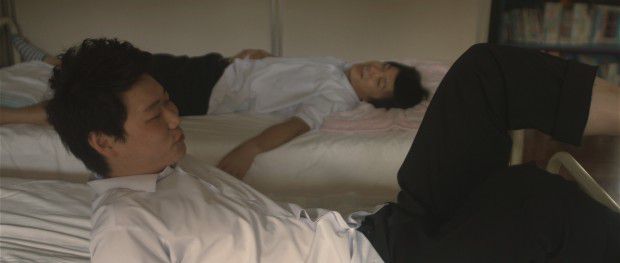
――作品のラストも鮮烈でした。今でも目に焼き付いています。
中川「ありがとうございます。本作は、答えを提示しているわけではなく、一つの失敗例を作品として見せています。僕自身の『どう向き合ったらいいのだろう』という迷いをそのまま反映しているので、あのラストになりました。答えはなんだろうと深く考えたのですが、これは対人の問題なので絶対的な答えというものは無いのではないかと。『多様性』の言葉の意味を本当に理解するためには、この考え方が必要だと思います」
——That ending was quite extraordinary. I am still very impressed.
NAKAGAWA: Thank you. I wanted the work itself to set an example of a failed story reflecting each person’s problem instead of being a representation of an answer. The ending was meant to raise the question of how should each person face each other. There is no absolute question to the profound question, I think. What is really necessary is the searching and understanding of the meaning of diversity.
――どうして多様性を考えるようになったのですか?
中川「この制作を通して考えるようになり、理解を深めていきました。草案の段階では多様性への理解があまりなかったので、主人公・月乃と同じく消化できていない感覚でした。観ていただいた方に『答えを提示していないところが良い』と言っていただきますが、そもそも答えが分からないからああいった作品になったのです。完成して色々なところで上映する機会があり、皆さんから感想をいただく中でだんだん自分の観点が見えてきました。完成して初めてのお披露目の場がレインボー・リール東京(東京国際レズビアン&ゲイ映画祭)で、ボロクソに言われることも覚悟して上映に臨んだのですが、多くの方に『よくぞこの視点で作ってくれた』と言っていただいて、泣くほど嬉しかったですね」
——How did diversity raise your concern?
NAKAGAWA: I don’t think that I understood it very well at the beginning while working on the draft.I couldn’t digest the meaning just like the character Tsukino. I would say that it is better not to show the answer to those who have watched the film. It was not a work aimed at understanding the question in the first place. There are many opportunities for the film to be screened and everyone would get to see their own point of view from it. The film was first shown at the Tokyo Rainbow Lille (Tokyo International Lesbian & Gay Film Festival). I was prepared to get criticized for it but most of the audience said that they appreciated how the story was told and I was glad to hear that to cry.
――では、この作品の制作を終え、いま考えていることは?
中川「次の作品にも関わってくるテーマなのですが、『障がい者の人権』についてです。相模原の殺傷事件がありましたが、本当に衝撃的だったのが、犯人が『誰にも望まれていない命はなくしてあげた方が良い』と言ったことに対して賛同する声がネット上で多く見られたことでした。そんなわけないじゃないですか。でも、そんなことがあっていいわけがないと強く思うのに、それは何故かということがロジカルに説明できないんです。だから、自分なりにそこについて向き合って考えるようになりました。僕は制作通して“対峙”していくやり方で、映画作りを通して毎回成長していきます。プロットは初めからあるけれど、制作段階で見えてきたものを拾って作品に取り入れていくというやり方なのです。だからこそ、自分と違う視点を持った周りの人たちの意見が重要ですし、その繋がりが幅を広げてくれる。多様性こそが僕の映画作りの起点であり、軸になっていると思います」
—— Now the film is done, what do you have in mind?
NAKAGAWA: My next film is going to be focused on the human rights of people with disabilities. I was shocked when the Sagamihara killing case took place. The criminal said that “it is better to be killed than having a life not worthy to live” and that was supported by many people on the internet. I couldn’t agree with it. I am strongly against it but somehow I can not articulate the reasons logically. And so I start with myself. There is growth every time when I make a film and confront the problems from within. Even though I have a clue with the plots at the begging, the main process is to pick up the elements through the stages as I work. That is why it is crucial to have someone around you who can see differently. That is how the view gets broadened. I think the topic of diversity is going to be an important axis of my work.
text Shiki Sugawara / Ryoko Kuwahara
『カランコエの花』
2018年7月14日より新宿K’s cinemaにてロードショー
カランコエの花オフィシャルサイト(http://kalanchoe-no-hana.com/)
前売り券はこちら(http://t.pia.jp/pia/ticketInformation.do?eventCd=1824915&rlsCd=001)
中川 駿
1987年 石川県出身/東京都在住。大学卒業後、イベントの制作会社にて勤務。退職後、ニューシネマワークショップにて映画制作を学ぶ。現在はフリーランスのイベント/映像ディレクターとして活動中。『time』(2014)、『尊く厳かな死』(2015)に続く、新作『カランコエの花』はLGBTQをテーマに第26回レインボー・リール東京でグランプリを受賞はじめ国内の映画祭でグランプリ6冠を含む計13冠を獲得した話題作。
